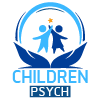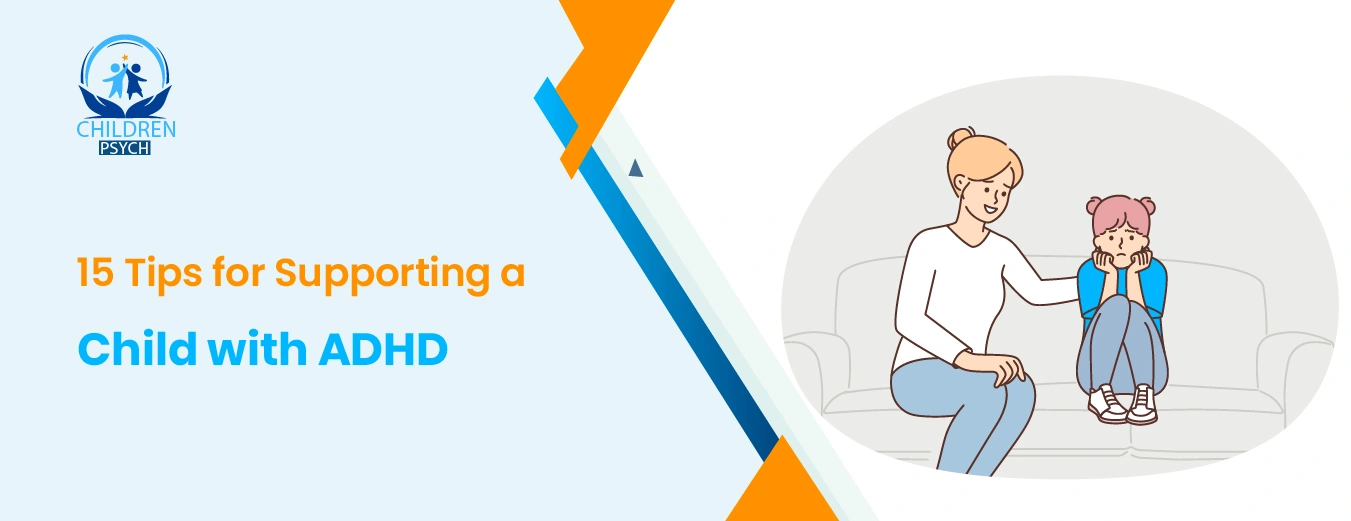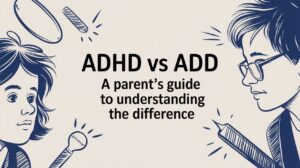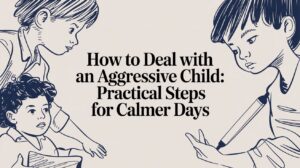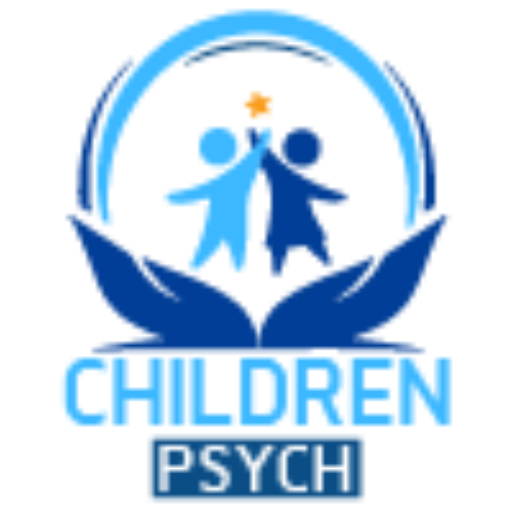Parenting a child with ADHD is not easy, but not impossible. If parents understand their child’s distinct requirements and utilize the best tips or strategies, then they can help their child get rid of ADHD.
Attention deficit hyperactivity disorder (ADHD) is a chronic mental illness that involves difficulty in focus or paying attention, hyperactivity, or impulsivity.
Recent data from the U.S Centers for Disease Control and Prevention (CDC) reported that approximately 11.4% children have been diagnosed with ADHD.
The most common symptoms of ADHD include:
- Inattention
- Hyperactivity
- Impulsivity
Due to these symptoms, children have to face a number of challenges in their home, school, or with friends and loved ones. They do not easily pay attention in the classroom and also forget the most important things. Moreover, they also face difficulty in social interactions. However, right and early useful therapeutic strategies can help them in effectively managing the symptoms of ADHD.
The following are the main tips or strategies that are useful for the effective management of ADHD in children:
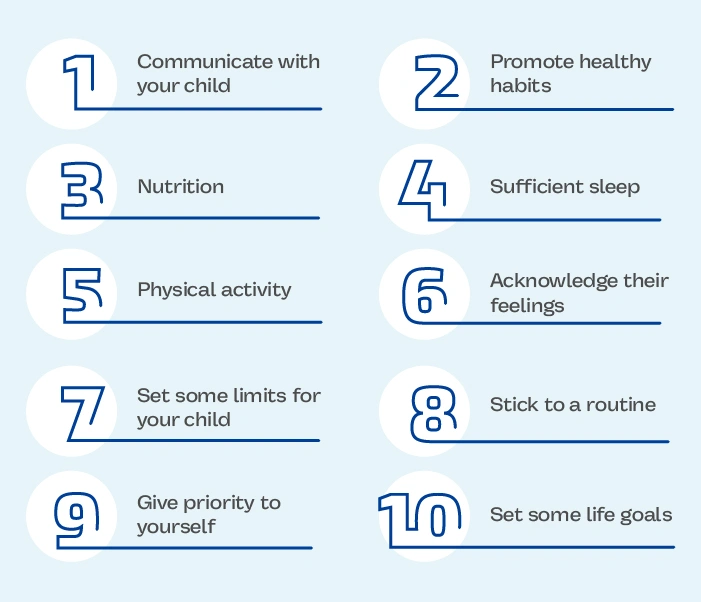
1. Communicate With Your Child
If your child is dealing with ADHD, then the first thing that you should ensure is open communication with your child. Ask them what they are feeling or what kind of difficulty they are facing due to ADHD symptoms. Moreover, communicate with your child in a simple, clear, and concise way, and also provide a serene, friendly, and non-judgmental environment where your child feels mentally relaxed to share all mental health concerns.
2. Educate Your Child And Yourself About ADHD
As a parent, it should be your priority to first teach yourself and your child what ADHD is and how its symptoms affect the child’s behavior and the entire life. This will help you navigate all the challenges caused by ADHD.
3. Promote Healthy Habits
You can help your child manage ADHD by encouraging them to adopt healthy habits, which include the following:
3.1. Nutrition
Children with ADHD face difficulty in eating nutritious food due to their picky nature, forgetting meals, and getting hyperfixated on certain things etc. So guide your child regarding the healthy and nutritious food choices to prevent the unhealthy or highly processed foods that can aggravate their ADHD symptoms.
3.2. Sufficient Sleep
If your child has ADHD and is not getting sufficient sleep, then there are higher chances that they will face difficulty in normal life functioning. Moreover, various studies have also reported that approximately 70% of children suffering from ADHD also struggle with multiple sleep issues, such as insomnia.
If they do not get sufficient sleep, then they feel low throughout the day and also do not easily focus on their vital daily life activities. Therefore, develop a structured routine for your child so they can easily deal with their ADHD and live a happier life.
3.3. Physical Activity
Most people think that children with ADHD have excessive energy due to the symptoms of hyperactivity. However, in reality, it’s not true as many children also do not have sufficient energy due to ADHD and therefore, require physical activity. If a child with ADHD regularly performs any physical activity, such as exercise, walking, running, or yoga, then it can help reduce ADHD symptoms and improve the quality of life.
4. Acknowledge Their Feelings
Do not criticize your child and acknowledge their feelings, emotions, and thoughts. Whatever they say, listen to them carefully and make sure that they are heard. Moreover, if they do anything good, then praise them and give them rewards. This will help them manage their symptoms of ADHD.
5. Set Some Limits For Your Child
Teach your child that every action has an equal reaction, so they have to think first before doing anything. Tell me that do not cross the limits and follow the specific guidelines provided by you or their teachers in the classroom or seniors. By defining the rules, you can control your child’s negative behavior and promote good or positive behavior.
6. Stick To A Routine
Children suffering from ADHD also face difficulty with organization. Therefore, make a schedule and instruct your child to stick to that specific routine every single day. This helps them improve their organizational skills. Moreover, the structured routine also helps in reducing the stress associated with ADHD.
7.Give priority To Yourself
Always remember that you can not help your child until you do not consider your own self. Therefore, also give importance to yourself and consider the best strategies to acquire mental well-being. Along with taking care of your child, get some time for yourself and pay attention to both your physical and mental health. You can go out for a walk with your siblings or friends or child, or also sit alone to experience mindfulness.
8. Set Some Life Goals
Tell your child that setting some goals is crucial to achieving success in life. If your child is unable to do it, then help them set and achieve the goals. Moreover, also encourage them to participate in healthy and productive activities where they not only experience success but also increased confidence and self-esteem.
9. Give Them Clear Directions
Children suffering from ADHD are unable to perform the executive functions effectively. Therefore, parents should give them clear, simple, and concise instructions so they easily understand things and do not feel difficulty in solving certain complexities. Avoid using multiple statements or questions while giving them a specific set of instructions.
Read More About: Parenting a Child with ADHD
10. Limit The Distractions
Limiting or reducing distractions is also another significant way to help children with ADHD. As children with ADHD face difficulty in focus or attention and get easily distracted so it is important to assist them by diminishing distractions so they improve their focus and attention.
11. Develop Social Skills
Encourage your child to participate in different social activities so they regain their confidence and self-esteem. By regularly participating in different social settings, they also learn different social skills that help them in different areas of their life, including their personal, professional, and also their relationships.
12. Stay Calm With Your Child
Don’t react negatively to your hyperimpulsive child. Whenever you talk with them, stay calm and relaxed. If your child does anything bad, then instead of immediately reacting, first take a deep breath and control yourself. The more you stay calm and relaxed, the more you can easily handle your child.
13. Focus On Their Strengths
As children with ADHD have low confidence and self-esteem due to their daily life struggles, as a parent, it’s your responsibility to ensure positive reinforcement instead of any negative attitude or criticism. Focus on your child’s strengths instead of negative aspects. Make efforts to find out and encourage their positive things, so they also focus on their strengths and show their efforts more to become their own best version.
14. Join ADHD Support Groups
Several support groups provide ADHD support both in-person and online. In support groups, individuals, including children, dealing with the same mental issues, interact with each other, share their personal life stories, or life experiences etc. Both parents and children can join the support groups and find support and guidance to deal with their ADHD. They learn from each other different skills and coping strategies that how to battle with the symptoms of ADHD.
15.Individualized Counseling
If you think that you are facing some difficulty in helping your child overcome ADHD, then you can consider professional help. Find the best therapist and give your child the professional mental health support they deserve.
Concluding Remarks
Parenting a child with ADHD requires effective planning and strategies to help the child manage the symptoms of ADHD. Ensuring the open and clear communication with children, educating yourself and your child with each aspect of ADHD, setting some goals in life, defining rules, encouraging healthy habits, providing clear and concise instructions, reducing the distractions, focusing on the child’s strengths, joining support groups and seeking professional help can work for managing ADHD in children.
Support Your Child’s Mental Health with Children’s Psych
At Children Psych, we are committed to helping your child get relief from mental issues and experience mental stability in a hassle-free manner.
Children Psych is a leading platform where you can find the best and professional psychiatric services for your children and adolescents. We have a professional, licensed, and trained team of child psychiatric nurse practitioners who are proficient in diagnosing and treating the common mental health issues of children, which include anxiety, depression, ADHD, OCD, and bipolar disorder, etc.
They are experts in developing tailored therapeutic strategies that cater to the individual requirements of each child and adolescent. Moreover, they employ evidence-based treatment plans for each child.
Consult Now!
Frequently Asked Questions
What are the ways to help your child in dealing with ADHD and behavior issues?
With the help of the following ways, you can assist your child in getting rid of ADHD and behavior issues:
Developing a structured routine
Acknowledge them
Reward their good or positive behavior.
Plan their life to maintain discipline.
What should you do if your child is dealing with ADHD?
If your child is suffering from ADHD, then don’t:
Use invalidating language
Yelling at your child
Ignore the positive reinforcement.
How to help your child deal with ADHD at school?
ADHD children find it hard to spend a normal day at school. Therefore, teachers should focus on:
Developing a specific routine to perform school activities
Breaking down larger complex tasks into simpler ones
Using visual aids
Diminishing the distractions
What are the 5 main C’s of ADHD?
Collaboration
Self-control
Consistency
Compassion
Celebration
